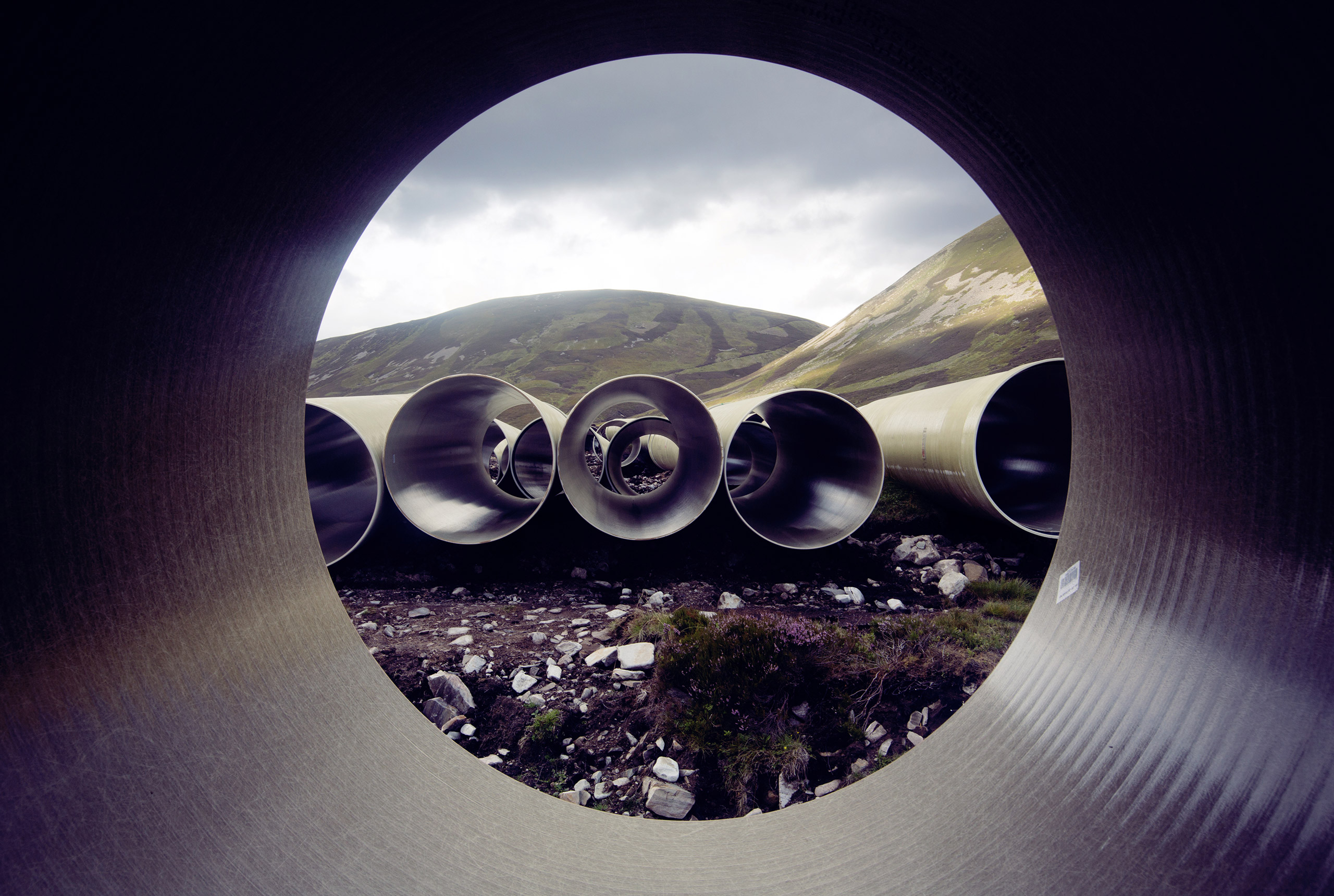Renewable energy
Atholl Estates is a large consumer of energy and currently, most of that is derived from fossil fuels. Our most significant demand for energy is for heating homes, holiday accommodation and commercial space, followed by fuel for vehicles which are used across the estate for transport, agriculture and forestry. We also continue to apply inorganic fertiliser to arable land on our in-hand farms, which is also produced using fossil fuels.
Conversely, the estate also produces green energy through hydro generation of electricity at five schemes which have a combined generating capacity of about 2.5 Megawatts, sufficient to power a town of 5000 homes.
Our energy policy is to to reduce consumption, transition away from fossil fuels and examine further ways we can produce green energy.

Reduction of Energy Consumption
The key means of achieving this objective will be through insulating our houses. We aim to achieve EPC level D at all properties by the end of the plan period and higher in cases where properties have been refurbished.
All properties, including holiday accommodation will have room thermostats fitted to allow heat control to be convenient and dynamic. We intend to work with SSE to ensure all properties are fitted with smart meters to allow tenants and staff to monitor and control their electrical consumption. There will also be increased monitoring of heat settings during voids in our holiday accommodation and office / visitor attraction space.
We don’t anticipate much opportunity to reduce vehicle energy consumption during the plan period as our land based industries require off road, high workload capable cars, trucks and tractors. However, greater attention will be given to ensure fuel consumption is a key metric in the selection of new vehicles and that work journeys are made as efficient as possible by smart use of time and planning.
Reduction in energy consumption on our farms will be covered in more detail in the Rural chapter of this plan. The objective will be met by establishing 2021 as a baseline, then setting reduction targets as part of the enterprise operating plans and budgets on an annual basis. The vectors for achieving reductions will be via a move to more regenerative methods of agriculture which requires less tillage and inorganic fertiliser.

Transition Away from Fossil Fuels
Blair Castle is our largest unit consumer of energy, mainly for heat as most electricity is sourced directly from its own hydro scheme. The castle’s Grade A Listing make it imperative that heat is maintained throughout the year, to impede degradation of the fabric and contents from damp however its scale and design inevitably demand a high energy heating source. Currently, the heat fuel is oil. Various studies have investigated non fossil fuel alternatives such as biomass and heat pumps but all so far have failed to be remotely viable or complaint with the historic listing. In the long term we anticipate the commercial hydrogen will be the answer but until that fuel is available, we anticipate a transition fuel will be liquified petroleum gas (LPG) or possibly biogas if an ethical supply could be sourced.
The largest consumer of fossil fuels by group on the estate is our housing stock which are mainly heated by oil. As from 2022, no further oil boilers will be purchased to replace existing stock unless there is clearly no alternative available. Our policy will be to use electric, LPG or air source heat pumps (ASHP) for renewing systems as circumstances indicate. As for the castle, electric and hydrogen will be the long term energy sources but we anticipate hydrogen for heat is at least 5 years away from being commercially available.
Electric vehicles (EVs) will be presumed in favour when purchasing new vehicles although options for our off-road fleet are not anticipated to be commercially available during the period of this plan. EV charging stations are already available at the castle, park and estate office. We will expand on the units and power sources as demand indicates.
Further Ways to Generate Green Energy
Investment in hydro generation during the last decade has exhausted the commercially viable opportunities in that sector on the estate however continued investment and attention to maintenance must be applied to ensure they continue to operate at optimum efficiency.
Solar for heat (water) and solarPV (electricity) has been unviable without grant at our latitude but with costs falling due to advancements in technology and scale, we will continue to monitor these options. There is particular anticipation that solar for heat could be viable for the caravan park shower blocks and solarPV farms might become viable during the period of this plan for sites with good access and close proximity to the grid or a high demand load such as an industrial estate.